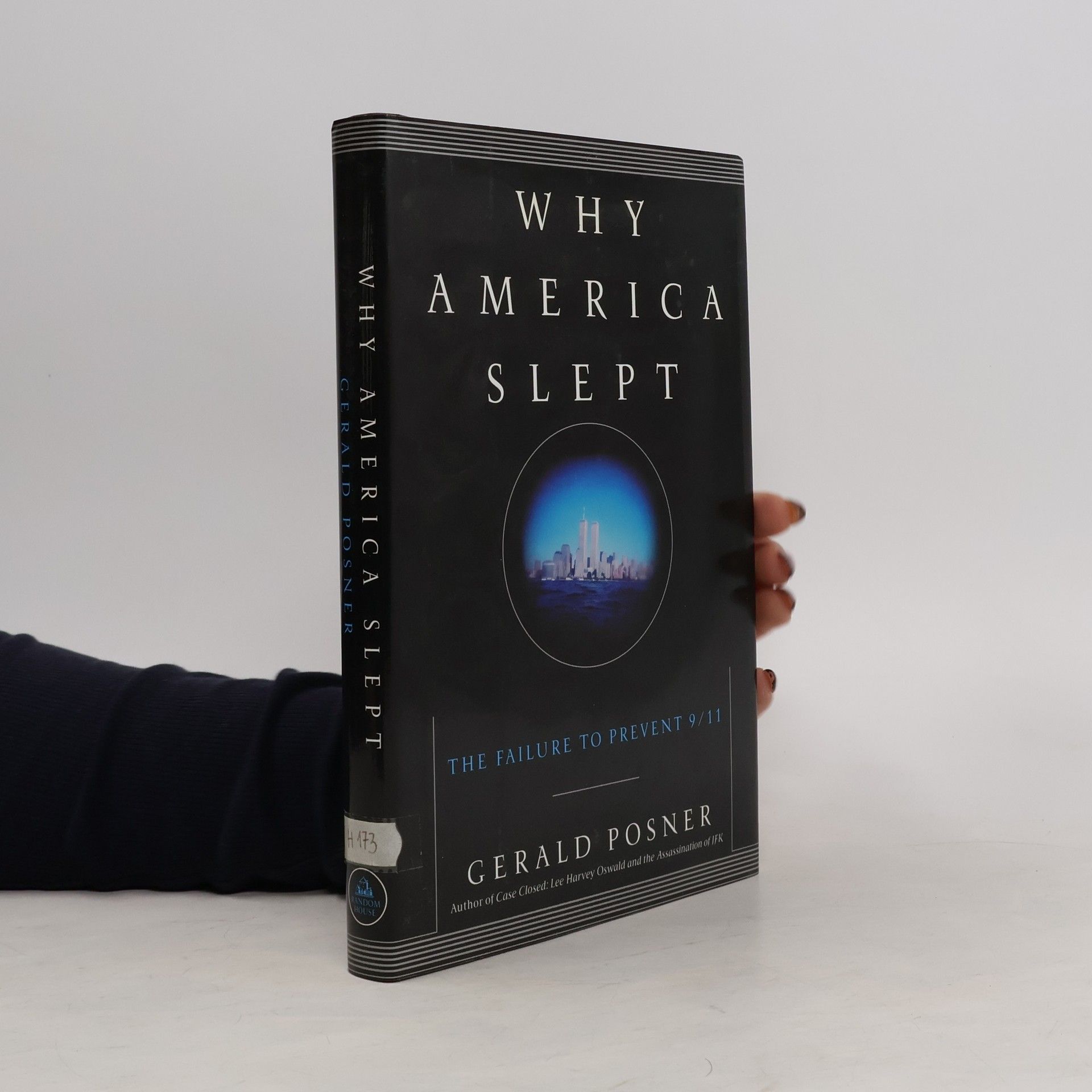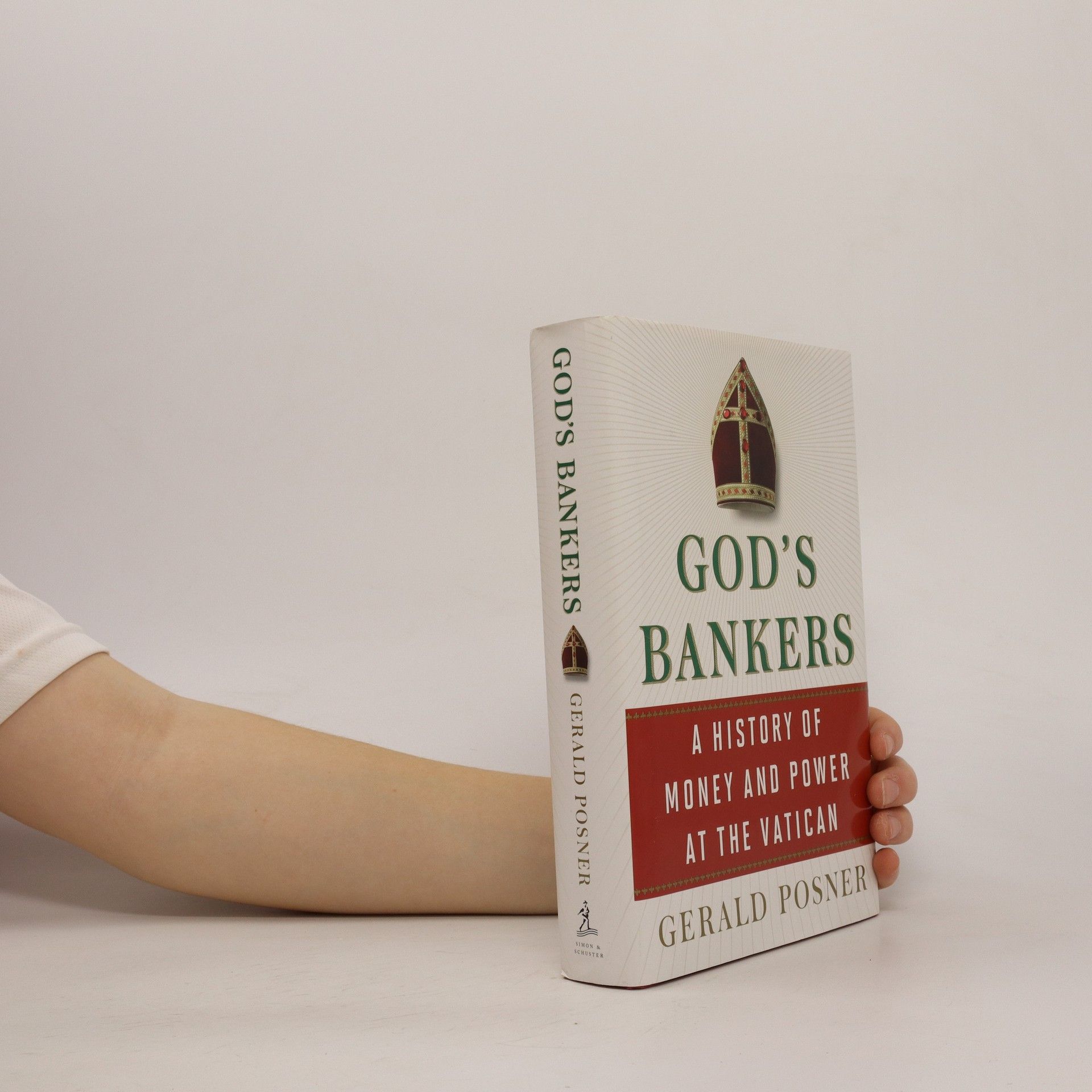Mega City One is under siege and the Judges are fighting a war of attritionThere's something new going on something, something bad it's a block war. It's Block Mania, the city thrown into massive, bloody turf wars. and no one is immune, not even the Judges. But this is all prelude to invasion.
Gerald Posner Books
Gerald Posner is a journalist renowned for his classic investigative approach, underpinned by meticulous fact-checking. His work, often straddling the realms of politics, history, and true crime, is characterized by thorough examination, myth-dismantling, and truth-uncovering. Posner's style, likened to a detective story, encourages deep contemplation, and his investigative methods have been lauded for their comprehensiveness and rigor.







Pharma
- 816 pages
- 29 hours of reading
Gerald Posner brings to life the pharmaceutical industry and shows how a business meant to save lives is steeped in corruption and reckless profiteering-with deadly consequences.
The assassination of John F. Kennedy on November 22, 1963, continues to inspire interest ranging from well-meaning speculation to bizarre conspiracy theories and controversial filmmaking. But in this landmark book, reissued with a new afterword for the 40th anniversary of the assassination, Gerald Posner examines all of the available evidence and reaches the only possible conclusion: Lee Harvey Oswald acted alone. There was no second gunman on the grassy knoll. The CIA was not involved. And although more than four million pages of documents have been released since Posner first made his case, they have served only to corroborate his findings. Case Closed remains the classic account against which all books about JFK's death must be measured.
God's Bankers
- 732 pages
- 26 hours of reading
Revealing a history of mysterious deaths, shady characters, and moral and political tensions, exposes the inner workings of the Catholic Church to trace how the Vatican evolved from an institution of faith into an extremely wealthy corporate power. --Publisher's description.
Why America slept : the failure to prevent 9/11
- 256 pages
- 9 hours of reading
Examines the terrorist attacks of September 11th and why the disaster was not prevented, discussing how breakdowns in intelligence and political infighting allowed terrorists to carry out an unprecedented attack on American soil.
Mengele
- 408 pages
- 15 hours of reading
Based on exclusive and unrestricted access to more than 5,000 pages of personal writings and family photos, this definitive biography of German physician and SS-Hauptsturmfuhrer Josef Mengele (1911-1979) probes the personality and motivations of Auschwitz's "Angel of Death." From May 1943 through January 1945, Mengele selected who would be gassed immediately, who would be worked to death, and who would serve as involuntary guinea pigs for his spurious and ghastly human experiments (twins were Mengele's particular obsession). With authority and insight, Mengele examines the entire life of the world's most infamous doctor.
Belastet
- 291 pages
- 11 hours of reading
W kilka minut decydował o życiu i śmierci tysięcy osób. Bez mrugnięcia okiem wysyłał więźniów do komór gazowych. Z tych, których pozostawił przy życiu, wybierał „obiekty” swoich eksperymentów. Nigdy nie poniósł za to kary. Josef Mengele jest uzdolnionym i wrażliwym dzieckiem, przewyższającym intelektem swoich braci. W szkole interesuje się sztuką i muzyką. Jak to możliwe, że kilkanaście lat później zostaje uznany za jednego z najokrutniejszych nazistowskich morderców? Staje się żywym symbolem hitlerowskiego „ostatecznego rozwiązania” w całej jego potworności. Krótkim gestem dłoni wysyła czterysta tysięcy więźniów na śmierć w komorach gazowych. W Auschwitz przeprowadza makabryczne eksperymenty medyczne. Szczególną uwagą darzy bliźnięta, którym wstrzykuje bakterie powodujące tyfus, wykonuje amputacje bez znieczulenia, umyślnie zakaża rany. Z powodu swojego okrucieństwa zostaje nazwany przez więźniów Aniołem Śmierci. Po wojnie Menegle ucieka z Europy. Dawni naziści organizują dla niego paszporty i schronienie. Wspiera go rodzina, z którą jest w stałym kontakcie. Wiedzie spokojne życie ze swoją nową żoną. Nie przyjmuje do wiadomości tego, jak wiele zła wyrządził. Unika nie tylko kary, ale również wyrzutów sumienia. Śledztwo biograficzne odkrywające sekrety życia jednego z najokrutniejszych zbrodniarzy wojennych.
Czy można być żarliwym nazistą i troskliwym ojcem? Josef Mengele wysyła setki tysięcy węgierskich Żydów do komór gazowych. Jednocześnie przeżywa z żoną drugi miesiąc miodowy w Auschwitz. Hans Frank nadzoruje trwającą w Polsce rzeź. Wieczorami jest troskliwym ojcem i godzinami ćwiczy z synem grę na pianinie. W Norymberdze Hermann Göring czeka na wykonanie kary śmierci. Pisze stamtąd pełne miłości listy do ukochanej córeczki. Jak to jest być dzieckiem zbrodniarza, który przyczynił się do śmierci milionów ludzi? Jak żyć z nazwiskiem, które jest synonimem największego zła? Czy można kochać kata? Dzieci czołowych nazistów po raz pierwszy opowiadają o swoich ojcach. Jedni potępiają zbrodniczą działalność rodziców na rzecz Trzeciej Rzeszy, inni próbują ją usprawiedliwiać. Kochają i nienawidzą. Czułość miesza się w nich z odrazą. Doniesienia o zbrodniach przesłaniają sielankowe wspomnienia z dzieciństwa. Jednak tylko oni mogą dostrzec człowieczeństwo w tych, w których my widzimy wyłącznie okrutnych sadystów.
